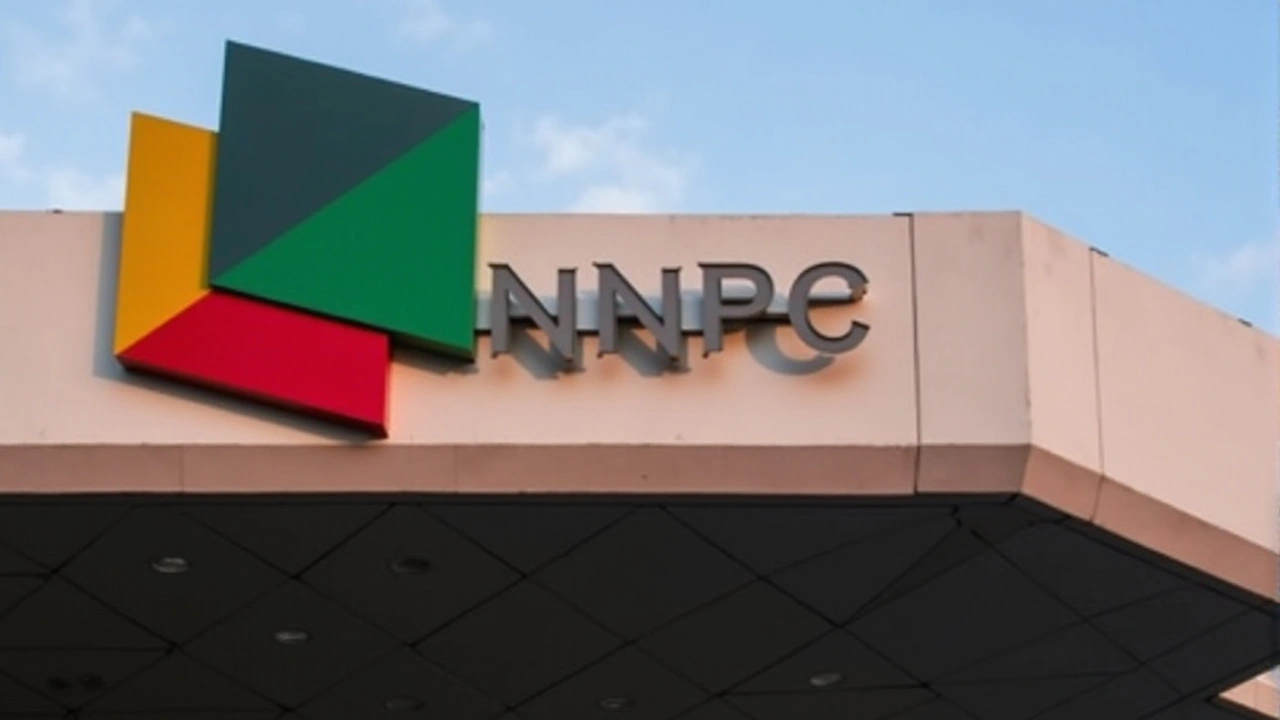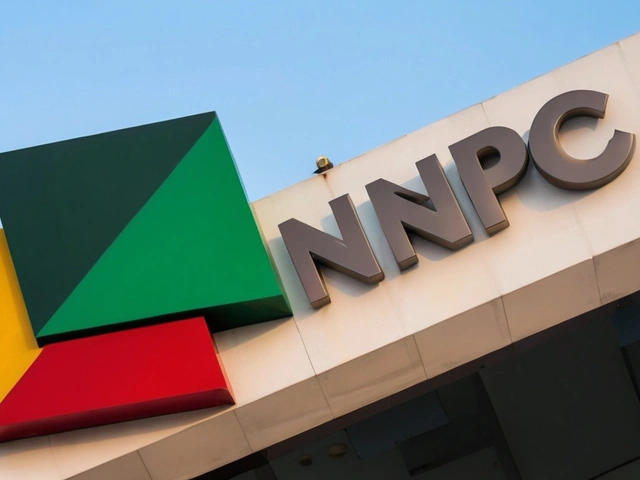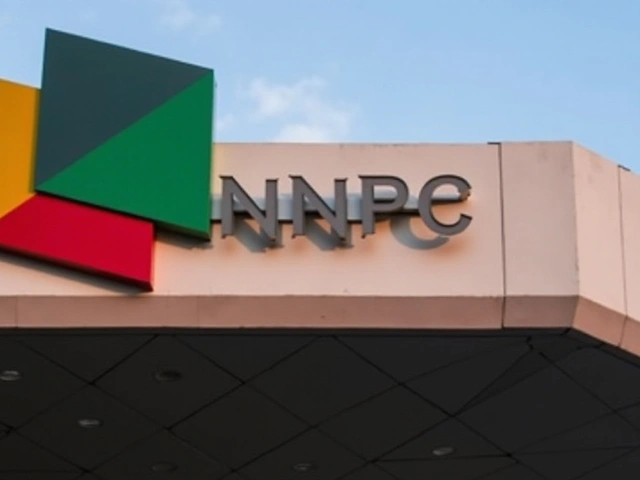
NNPC Refutes Atiku's Allegations: Wale Tinubu Not Involved in OVH Energy Acquisition
The Nigerian National Petroleum Company (NNPC) Limited has strongly denied recent allegations made by former Vice President Atiku Abubakar regarding the controversial acquisition of OVH Energy. Atiku had claimed that the acquisition, which took place in 2022, was influenced by 'corporate cabals' close to President Bola Tinubu, including Wale Tinubu, the CEO of Oando Plc. According to Atiku, this manipulation allowed Oando to secure a 49% ownership stake in NNPC Retail following the OVH deal.
However, in a detailed rebuttal, the NNPC clarified that Oando had no stake in the acquisition at the time of the deal. The state-run oil company explained that Oando had divested its equity in OVH completely to Vitol and Helios. This divestment process began back in 2016 and was finalized by 2019, resulting in both Vitol and Helios owning equal 50% equity interests in OVH.
To emphasize the legitimacy of its actions, the NNPC pointed out that all its investment decisions are guided by commercial viability and national interest, countering Atiku's accusations of underground deals. The company emphasized that its processes are transparent and free from external influence, ensuring independence in its operations. Neither President Tinubu nor Wale Tinubu holds any stake or interest in the OVH acquisition, they reiterated.
On the subject of the merger, the NNPC disclosed that the integration of NNPC Retail Ltd into OVH has been completed. The process of renaming and rebranding post-merger is currently ongoing, aiming to solidify the new entity’s market presence. The NNPC expressed its commitment to maintaining the highest level of integrity and transparency in its operations.
Financial performance was also highlighted to underscore the company's robust stewardship. The NNPC reported a remarkable profit after tax of N3.3 trillion for the 2023 fiscal year, indicative of its operational success and financial stability. This substantial profit underscores the effectiveness of the company’s management in steering NNPC towards achieving its economic objectives and safeguarding national interests.
By releasing this information, the NNPC aims to dispel any rumors and maintain its credibility, particularly amid turbulent political currents. The company reiterated its dedication to fostering growth and value creation for Nigeria and emphasized that its management would remain separate from partisan politics. The NNPC insisted on focusing on its mandate to serve the nation’s economic and energy needs, staying clear of any political entanglements.
This sequence of events and clarifications underscores a critical aspect of Nigeria’s energy sector, highlighting the intricate balance between corporate autonomy, government oversight, and the ever-present specter of political influence. For the NNPC, maintaining this balance is crucial to preserving its integrity and operational effectiveness, especially in the eyes of both national and international stakeholders.
Implications of Allegations
The allegations by Atiku Abubakar point towards a greater narrative often seen in Nigerian politics, where economic actions are frequently construed as politically motivated. Such claims, if left unaddressed, have the potential to erode public trust in state institutions and their officials. This is why NNPC’s swift and detailed response is pivotal in maintaining credibility and public confidence.
Historical Context
To understand the roots of such allegations, it is essential to look back at previous instances where state-controlled entities were accused of containing political undertones in their operations. Historically, the Nigerian oil sector has been a hotbed of controversy, marked by accusations of graft and nepotism. These historical contexts help shed light on why current allegations gain traction and why responses like that of NNPC are vital.
The issues raised by Atiku Abubakar serve as a reminder of the ongoing need for transparency in the operations of state-owned enterprises. The NNPC’s response, detailing the divestment timeline of Oando from OVH, provides a factual counter-narrative intending to clarify any misconceptions about ownership structures and influence. Such transparency is a step towards ensuring that state enterprises operate devoid of undue political or corporate influence.
Corporate Governance
Another dimension to consider is the governance structure within the NNPC and other state-owned entities. Effective corporate governance is pivotal in deterring undue influences and ensuring that actions align with the greater good of national interest. The NNPC has emphasized its adherence to commercial viability and national interest in decision-making. Promoting strong governance practices will be essential for the NNPC to restore and maintain trust among all stakeholders.
Moreover, the NNPC’s assertion that its merger with OVH has been completed and the company is in the renaming process demonstrates an ongoing commitment to corporate restructuring aimed at building a more resilient and competitive entity. This strategic move is expected to enhance operational efficiency and position the company better in the volatile global energy market.
Economic Impact
The NNPC’s financial performance, marked by N3.3 trillion profit after tax in 2023, is a significant indicator of its capacity to contribute to national economic development. Such performance reflects the outcomes of strategic management decisions and underscores the potential of the NNPC to serve as a fulcrum for economic growth. This record profit speaks volumes about the company’s operational efficiency and its ability to capitalize on market opportunities.
Future Outlook
Looking forward, the focus for the NNPC will likely remain on continuous improvement in transparency, governance, and operational efficiency. By reinforcing these pillars, the NNPC can better navigate the complexities of the Nigerian and global energy landscapes. Building on its recent financial success, the company is poised to make more impactful contributions to the Nigerian economy, provided it remains shielded from undue political influences.
In conclusion, as the NNPC and other stakeholders move past this episode of allegations and denials, the primary focus should remain on fostering an environment where state enterprises can thrive based on merit, guided by principles of transparency and governance. The NNPC’s rebuttal against Atiku’s claims is a step in this direction, aiming to preserve the integrity of the company's actions and its overarching mission to serve the Nigerian people.








